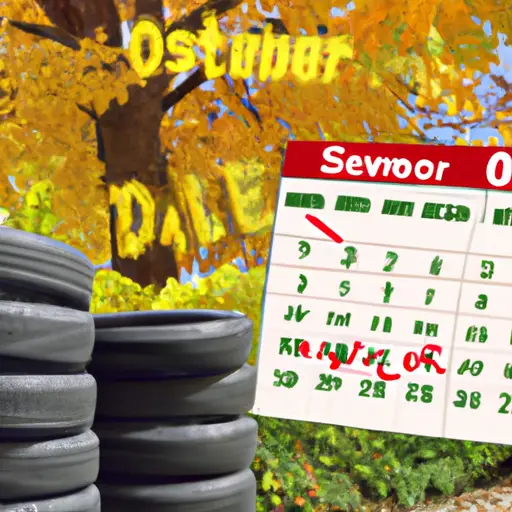Best Time To Buy HVAC System (Save 10-20%+)
Aim to replace HVACs in spring or fall – the off-seasons mean less demand, more contractor availability, and 10-20% savings. Additionally, shop end of model year sales in September and October for steep discounts on previous year’s units. Getting multiple quotes also typically yields a 10% lower price. Moving quickly on quotes locks in the best deal.
Buying a new heating, ventilation and air conditioning (HVAC) system is a major investment for most homeowners.
The average cost to replace an HVAC system ranges from $4,800 to $12,500 depending on the size of your home, type of system, brand and other factors.
With such a large purchase price, it’s understandable that you’ll want to find ways to save money wherever possible.
One of the best ways to reduce the cost of a new HVAC system is to buy it at the optimal time. While HVAC systems do need replacing at some point due to wear and tear, when you buy matters.
Timing your HVAC system purchase strategically can result in thousands of dollars in savings.
We’ll also provide 7 money-saving tips for buying an HVAC system so that you maximize savings.
Let’s dive in so you can save the most money possible on this major purchase for one of the most important systems in your home.
When Are The Best Months to Buy an HVAC System?
The time of year and even month that you opt to install or replace your furnace, air conditioner, heat pump or full HVAC system can determine the final price you’ll pay. Here is an overview of the prime times to purchase an HVAC system:
Fall Months
Early fall just before winter hits is an ideal time to buy a new furnace or heating system. Contractors tend to be less busy during this slower season. They may provide you better deals and discounts to incentivize buying before the winter rush.
September, October and November are great months to replace a furnace. You’ll have the entire winter ahead to use a new, efficient model versus dealing with an old failing system.
Spring Months
If you want to replace your air conditioner, spring is the optimal season. April, May and June tend to have lower demand, allowing contractors to offer better rates on AC installations and full system replacements. This prevents having to go all summer with an old inefficient or malfunctioning AC unit.
End of Summer
Though summer is peak HVAC season, the end of summer in August and September provides unique sales opportunities. Contractors are winding down after the busy season and may offer end of summer savings.
Stores also want to clear out inventory before new models arrive in the fall. Take advantage by asking for a discount, coupon or incentive.
Shoulder Seasons
The weeks just before peak winter and summer are called “shoulder seasons”. Demand hasn’t fully picked up yet. Companies offer promotions to attract early business before the rush. Scheduling installations in late spring or early fall means less competition for appointments too.
Avoid Holidays and Extreme Weather Days
It’s more expensive to schedule HVAC work on holidays, weekends and extreme temperature days when emergency rates apply. For optimal savings, have the work done on a normal weekday when demand is lower.
What Days & Times Should I Schedule Installation?
Not only does the month and season matter, but the actual day and time can also impact pricing:
- Weekday appointments tend to be less expensive than weekend or night premium rates
- Mid-week days like Tuesday, Wednesday and Thursday are better than Mondays and Fridays
- Mornings are cheaper than afternoons when technicians charge more for the inconvenience
By picking an ideal date and time, you can maximize savings on the installation itself. This allows room in your budget to upgrade features or components.
How Far in Advance Should I Schedule?
Ideally you should schedule your HVAC replacement or install at least 4-6 weeks out. This gives the contractor adequate time to order the equipment and put you on the calendar. It also allows you time to get quotes from multiple companies during slower seasons for the best rate.
If you wait until right before peak heating or cooling season starts, limited appointment availability means paying a premium. Schedule early fall or late spring to get ideal pricing.
Can I Negotiate Even Lower Prices?
Absolutely! Even during slow seasons, additional savings may be available if you negotiate with confidence:
- Ask for a seasonal discount
- See if any coupons are available
- Request a multi-system or loyalty reward
- Bundle with insulation or ductwork upgrades
- Agree to leave a positive review
- Pay in cash for lower rates
- Offer to provide testimonials or referrals
The worst they can say is no. But more often than not, HVAC companies want your business and will work discounts if approached politely but assertively.
7 Money-Saving Tips for Buying an HVAC System
Beyond picking the right month and week, here are 7 additional money-saving tips when investing in a new home HVAC system:
1. Get Multiple Quotes
When making such a large purchase for your home, always get 3-4 quotes from different HVAC contractors. Comparing rates makes it obvious who offers the best deal and prevents overpaying.
2. Look for Rebates and Tax Credits
There are often rebates available from local utilities and governments for installing ENERGY STAR certified HVAC equipment. Federal tax credits may also offset 30% of the cost.
3. Buy Same Brand as Current System
Staying with the same brand often costs less since technicians are familiar with installations. It also guarantees compatibility with existing HVAC components.
4. Only Buy What You Need
Avoid overbuying on size and features. Consider a single stage compressor and programmable thermostat. Though two stage systems provide more comfort, the lower hardware costs for a single stage unit lead to thousands in lifetime savings.
5. Ask About Financing Options
Many HVAC companies offer 0% interest financing or payment plans. This spreads costs over time allowing you to afford a better system. Just make sure to clarify terms so no hidden fees get tacked on.
6. Install on a Weekday
Weekend and holiday installation rates can be as high as double the cost of a normal weekday call. By being flexible with dates, you save significantly.
7. Prepare in Advance
Having your home ready for the install crew accelerates the process. That means less labor time and lower cost. Clear a path, make an electrical outlet accessible and have all permissions ready to keep the work flowing.
Things To Consider Before Buying
Purchasing a new HVAC system is a significant investment for your home. To help you make an informed decision, consider the following factors:
1. Type of System
There are various types of HVAC systems, each with its pros and cons. Familiarize yourself with the different types and determine which one best suits your needs and home.
2. Location
Your location determines the minimum SEER (Seasonal Energy Efficiency Ratio) rating standards your new HVAC system will need. The north, south, and southwest all have slight differences in those standards, making it important that you know the minimum requirements for your area.
3. Budget
Some HVAC units cost twice as much as others, so budget accordingly. Keep in mind the installation costs and any additional expenses, such as ductwork modifications or refrigerant charges.
4. Capacity
Ensure that the HVAC system has the appropriate capacity to cool or heat your home effectively. An undersized system may lead to inefficient and noisy operation, while an oversized system may be unnecessary and more expensive to operate.
5. Climate
Consider your local climate when selecting an HVAC system. Some systems, like heat pumps, may not perform well in colder regions, while others, like central air conditioners, may be more suitable for areas with high temperatures.
6. Efficiency
Energy-efficient systems can save you money on energy bills. Look for systems with high SEER ratings and HSPF (Heating Seasonal Performance Ratio) ratings, which indicate the system’s efficiency in heating and cooling modes, respectively.
7. Air Quality
If indoor air quality is a concern, consider systems with advanced air filtration features or humidity control capabilities.
9. Comfort
Comfort features, such as zoning systems or programmable thermostats, can enhance your home’s comfort and energy efficiency.
10. Reliability
Research the reliability of different brands and models based on consumer reviews and ratings. Reliable systems tend to have fewer problems and longer lifespans.
11. Installation
Ensure that your home is prepared for the HVAC system. This may include checking the existing ductwork, insulating ducts, and sealing any air leaks.
By considering these factors, you can make an informed decision and choose the best HVAC system for your home. It’s also a good idea to consult with local HVAC professionals to get personalized recommendations and compare different systems and installation options.
The Bottom Line
Replacing or installing heating and cooling equipment is always expensive. But you have more control over the final price than you may think. By applying the tips in this guide, you can save hundreds if not thousands off the cost of a new HVAC system.
A little research combined with strategically timing your purchase allows investing in one of your home’s most important systems without overspending. Use these best practices to determine the ideal month, day and time to buy. Compare multiple quotes. And leverage special promotions common during slower seasons.
Taking some time upfront to buy smart makes enjoying cool breezes or cozy warmth provided by a new HVAC system much more affordable this year and for many more to come.






